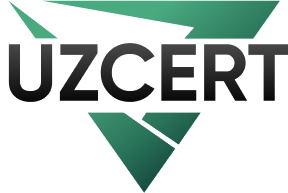
GitAuto — An Intelligent Quality Checker Automating Security
In today’s software development landscape, the primary threat to security lies in vulnerabilities arising from untested or inadequately tested code. These vulnerabilities not only lead to significant financial losses for organizations but also erode user trust. While automated testing is widely recognized as a best practice, its implementation is often limited due to the complexity of manual management. GitAuto, an autonomous quality assurance (QA) agent developed by engineer-turned-entrepreneur Hiroshi Wes Nishio, addresses this challenge by fully automating the testing process. This innovative solution strengthens software security from within, ushering in a new era in cybersecurity.
Modern software vulnerabilities frequently stem from overlooked edge cases, mishandled input data, or untested integration scenarios. According to research from GitHub Security Lab and OWASP, a significant portion of preventable vulnerabilities could be mitigated through comprehensive testing if such tests were in place. However, resource constraints or the complexity of manual testing often hinder this possibility.
GitAuto was specifically designed to bridge this gap. It identifies sections of code lacking test coverage and autonomously generates corresponding unit and integration tests. Unlike passive suggestion tools like GitHub Copilot, GitAuto actively monitors continuous integration (CI) workflows, analyzes test reports, and initiates testing tasks without human intervention. This shift from reactive to proactive quality assurance embeds security checks into the earliest—and most critical—stages of the development process.
GitAuto operates as a fully autonomous agent within the GitHub environment. Its process unfolds as follows:
- Analysis: GitAuto examines coverage reports from GitHub Actions and GitHub Artifacts.
- Detection: It identifies untested files and functions, opening GitHub Issues with detailed context.
- Test Creation: It automatically generates relevant tests and submits them as pull requests.
- Testing and Correction: If tests fail, GitAuto corrects errors and re-runs the tests until they pass.
Unlike other generic AI tools that risk producing invalid code, GitAuto minimizes this danger by combining AI-generated changes with rule-based logic to align with the repository’s structure and coding standards. It studies the repository’s configuration files, analyzes naming conventions, and reuses existing test patterns. This approach enables GitAuto to manage even complex and legacy codebases, such as those considered too risky for manual modification.
For security teams, GitAuto’s full compatibility with GitHub’s secure infrastructure is a significant advantage. Sensitive tokens, environment variables, and test execution remain confined to the GitHub Actions ecosystem. GitAuto accesses only the data necessary for each task, and all test coverage artifacts are retrieved exclusively from GitHub’s secure storage. This makes it an ideal solution for teams operating under strict internal security requirements or in regulated industries.
As of April 2025, GitAuto has been adopted by over 220 organizations across sectors such as IT services, automotive, financial services, payment systems, and databases. Each of these industries faces unique security challenges. For instance, a leading IT outsourcing firm uses GitAuto in its workflows to develop financial and logistics systems for large enterprise clients. These projects often involve complex integration code and rapidly evolving requirements, where insufficient test coverage can lead to costly errors. By automatically generating test cases across multiple modules, GitAuto has improved delivery quality and reduced production incidents.
Traditional manual QA processes require coordination among developers, testers, and DevSecOps teams. GitAuto streamlines this cycle by generating dozens or even hundreds of test cases in parallel, significantly reducing the time needed for new coverage. Some companies have reported testing speed improvements of 5 to 10 times compared to their previous processes.
GitAuto’s founder, Hiroshi Wes Nishio, brings a unique security-focused expertise to the AI-driven coding space. Before launching GitAuto, Nishio worked in investment banking and later led digital transformation at a billion-dollar Japanese retail group. There, he oversaw security-critical system integrations, including secure data transfers, IP whitelisting, and audit trail implementations across distributed teams.
In 2021, Nishio founded Suchica, creating a Slack-based AI assistant that scaled to over 600,000 uses. While working with healthcare clients, he implemented HIPAA-compliant practices, negotiated Business Associate Agreements, and integrated AI services under stringent compliance requirements. These experiences shaped GitAuto’s principles of reliability, security, and trust in code automation.
Nishio personally led a third-party penetration test for Q, his Slack-integrated AI assistant, in collaboration with Slack’s platform team. He took direct responsibility for addressing all tested areas, including database API design, session enforcement, and secure HTTP headers. He implemented a scoped token architecture, strengthened access control logic, and deployed CSP (Content Security Policy) and HSTS (HTTP Strict Transport Security) headers. This hands-on experience shaped his security-first approach, which now underpins GitAuto’s architecture and operational safeguards.
GitAuto was named one of the top 20 global AI agents in the AI Agents Global Challenge organized by Agentplex Ventures. The competition focused on real-world enterprise applications of AI agents, with cybersecurity highlighted as one of six core categories. The judging panel included industry leaders such as Capital.com CEO Viktor Prokopenya, CMU Adjunct Professor and Sancus Ventures founder Lake Dai, and Blitzscaling Ventures partner Jeremiah Owyang. GitAuto was recognized for its autonomous QA capabilities and its critical role in secure software delivery in regulated, high-risk environments.
Security experts increasingly acknowledge that quality assurance is a prerequisite for secure software. As DevSecOps practices mature, tools that automate and scale defensive coding practices are becoming ever more essential. GitAuto aligns seamlessly with this trend. Instead of adding a new layer of security tools, it strengthens the codebase through comprehensive and predictable testing.
In an environment where AI-generated code can inadvertently introduce vulnerabilities, GitAuto provides a balance, ensuring stability, accountability, and verification. For teams aiming to embed security early without expanding headcount or sacrificing development speed, GitAuto offers a practical and forward-looking solution.
In Uzbekistan, the IT sector is rapidly growing, particularly in areas like finance, e-commerce, and public services, where digitalization projects are expanding. In such an environment, developing secure software is not only a technical requirement but also a matter of national security. Tools like GitAuto present significant opportunities for Uzbekistan’s local software developers and startups. For example, in security-critical projects such as financial applications or e-government systems, GitAuto can reduce costs and enhance quality by automating testing processes.
For Uzbekistani developers, GitAuto’s integration with GitHub offers convenience, as GitHub is widely used in the global programming community. Local companies can leverage this tool to create software that meets international security standards, increasing their chances of entering the global market. At the same time, raising cybersecurity education and awareness in Uzbekistan is essential. For instance, local universities and IT academies could incorporate modern tools like GitAuto into their curricula.
GitAuto has highlighted the critical link between security and quality assurance in software development. Its autonomous testing capabilities not only save time and resources but also establish a robust foundation for protecting systems against cyberattacks. Hiroshi Wes Nishio’s security-focused expertise and GitAuto’s innovative approach have made this tool a globally recognized solution.
In developing IT markets like Uzbekistan, technologies like GitAuto not only boost the competitiveness of local companies but also contribute to creating a secure digital environment. Cybersecurity is not just a technological issue but a responsibility for every developer, organization, and user. If you need assistance with implementing GitAuto or strengthening code security, feel free to reach out—I’ll explain each step in detail!



